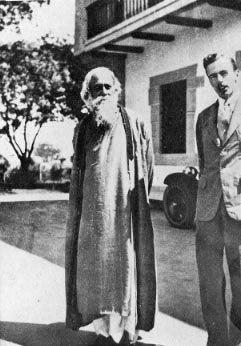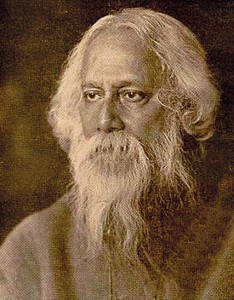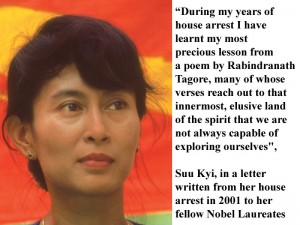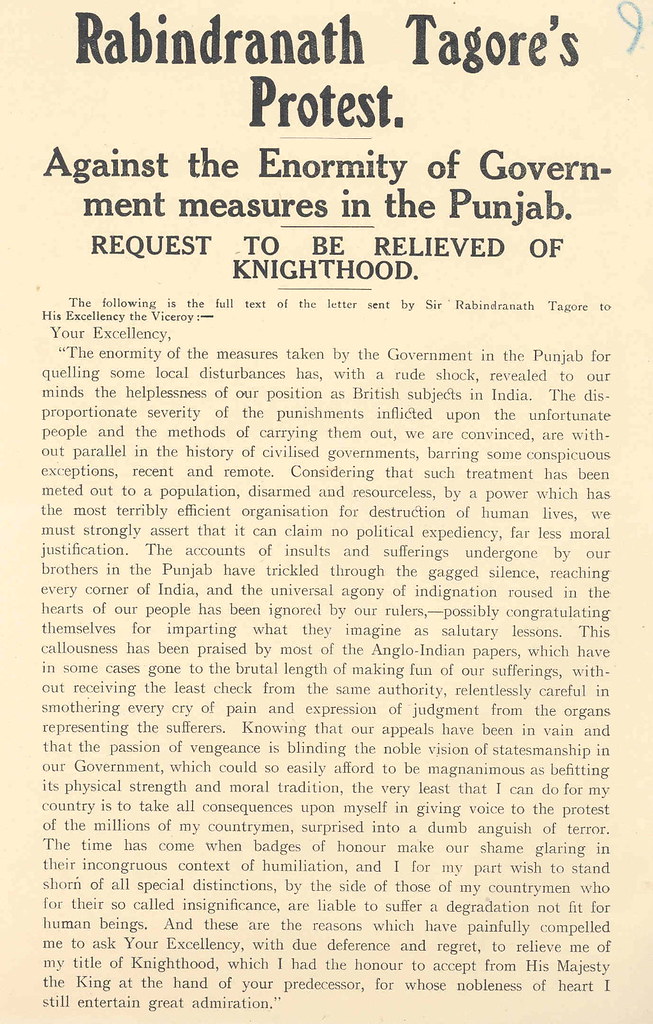
Tagore and LK Elmhirst, photo from Parabaas (July 15 2001)
Tagore was deeply dissatisfied with the system of education. Education and pedagogy therefore became Tagore’s preoccupation. He decided to found his own school in 1901, with 5 students and 5 teachers. This evolved into an entire university, which Tagore named Visva-Bharati. The Sanskrit name, as Tagore explained at the university’s inaugural ceremony in 1921, means ‘where the whole world forms its one single nest’.
The philosophy behind the university was unique. First, it would bring together knowledges from the East and West. Second, the university would connect to, and become an integral part of the community within which it was located. Tagore’s objective was to break with the traditional model of the university where the elite pursued knowledge for its own sake. Rather, a university must touch the lives of ordinary people and build a true human community where no one was marginalized. It was no accident that Tagore’s Visva Bharati was located in a village and not in a city, not amidst the urban, British-schooled affluent classes. Very close to Visva Bharati Tagore established the Institute of Rural Reconstruction, yet another institution designed specifically to serve the rural economy.
LK Elmhirst was an agricultural economist trained in Cornell University, USA who was invited by Tagore to assume the directorship of the that Tagore established. Tagore wrote to him:
I remember how you came fresh from your university and you were absurdly young, but you were not the lean academic or aridly intellectual. With your instinctive humanity you came into the closest touch with the living being which is the village, and which is not a mere intellectual problem that could be solved through the help of arithmetical figures. Continue reading »
 Click the items below to read more about Tagore:
Click the items below to read more about Tagore:


